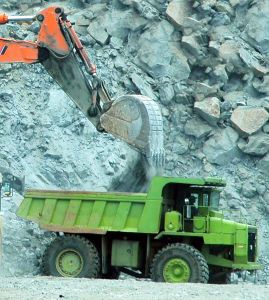The U.S. Department of Labor’s Occupational Safety and Health Administration filed a petition last week intended to reduce the instance of chronic respiratory illness and cancer among U.S. workers. The plan seeks to lower worker exposure to crystalline silica, a toxic particle that kills hundreds of workers and sickens thousands each year. OSHA’s proposed rule includes two separate standards-one for general industry and maritime employees and one for employees in the construction industry.
 Currently, OSHA enforces a rule dated 40 years to regulate permissible exposure limits (PEL) for silica exposure, which is inconsistent between different work industries. The proposed rule would bring these PELs up to workplace standards and into the 21st century; greatly lowering the amount of silica exposure to workers. OSHA predicts that this new mandated policy would save nearly 700 lives per year and prevent 1,600 new cases of silicosis annually.
Currently, OSHA enforces a rule dated 40 years to regulate permissible exposure limits (PEL) for silica exposure, which is inconsistent between different work industries. The proposed rule would bring these PELs up to workplace standards and into the 21st century; greatly lowering the amount of silica exposure to workers. OSHA predicts that this new mandated policy would save nearly 700 lives per year and prevent 1,600 new cases of silicosis annually.
What is Crystalline Silica and Where Is It Found?
Crystalline silica is a micro component of soil, sand, granite, and other types of materials. Quartz, cristobalite, and tridymite are three types of crystalline silica. When materials containing crystalline silica are grinded, cut, or drilled the particles become respirable-sized. Crystalline silica is considered a human carcinogen, and can cause a variety of respiratory issues including lung cancer, silicosis, chronic obstructive pulmonary disease and kidney disease. When inhaled, crystalline silica causes scar tissue formation on the lungs, and debilitates the lungs’ ability to absorb oxygen. Silicosis, aside from being incurable, can lead to other infectious diseases and debilitating conditions including tuberculosis.
Silica exposure is a threat to nearly 2 million workers in the United States and is most common in construction jobs including abrasive blasting, foundry work, stone cutting, rock drilling, quarry work, tunneling, as well as maritime work. The most common exposures to workers in construction occur during abrasive blasting with sand to remove rust and paint from bridges, and other surfaces, as well as concrete mixing, concrete drilling, brick cutting, and rock drilling.
General industry employees are often exposed to crystalline silica particles from asphalt paving jobs, painting industries, cement and ceramic manufacturing, as well as soap and glass manufacturing.
Continue reading
 Massachusetts Workers' Compensation Lawyer Blog
Massachusetts Workers' Compensation Lawyer Blog









